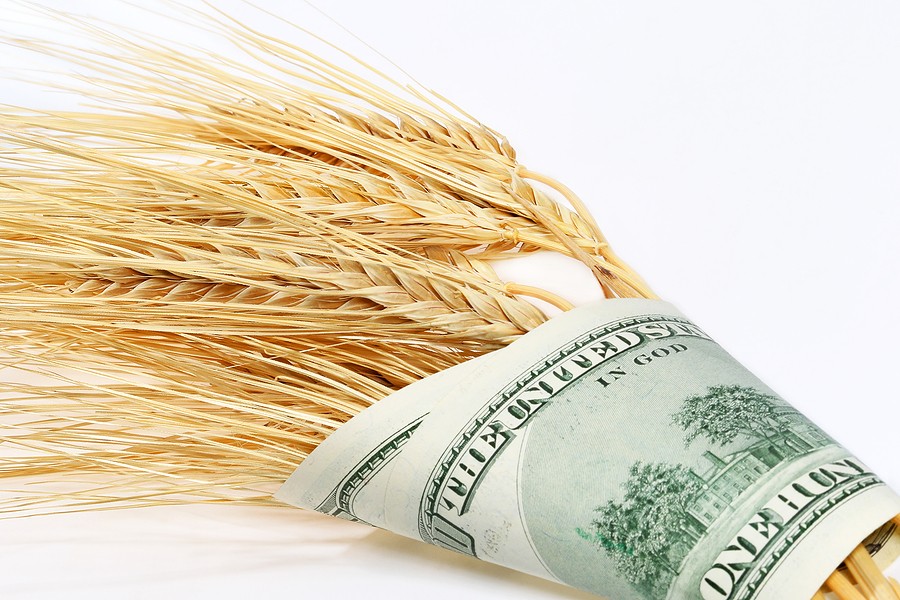Hey Farm Aid,
I’ve started hearing about new free trade deals that might make their way to Congress soon. Is this something I should be concerned about? Farmers like me weren’t big fans of NAFTA – will these trade deals be similar?
Thanks!
Jim F.
Sparta, GA
Hey Jim!
Thanks for such a great and timely question. Here at Farm Aid, we don’t often delve into issues like international trade deals. But when we hear from a chorus of family farmers and farm organizations that these deals are a giant train wreck, our ears perk up.
Sounds like yours do too.
The short answer to your question is yes. International free trade deals currently being negotiated will have a big impact on food and farm systems in America—and therefore each and every one of us—and it’s time for us to listen up and speak out.
But there’s a lot behind that simple answer. Let’s explore what these deals are about and why they are especially worrisome to anyone who cares about family farmers, good food, and the functioning of our democracy!
“Free” trade?
An aggressive media campaign from the Obama Administration has flooded rural newspapers with opinion pieces that tout the benefits of free trade and the promise of farm exports. As Roger Johnson, president of the National Farmers Union, recently noted: all of Washington D.C. seems to be walking around like “lemmings in a sort of ‘free trade trance.'”
But individual family farmers, as well as state and national farm organizations, aren’t buying it. They’ve heard this all before and in fact, recall very similar promises for policies that instead helped spark the Farm Crisis that rippled through America in the 1980s and inspired the founding of Farm Aid.
In general, free trade agreements are set by countries to remove policies like quotas, tariffs or taxes that are considered “barriers” to trade on imports and exports. The idea is to expand trade opportunities that presumably benefit hard-working people in all countries involved.
But the devil, as they say, is in the details. Especially when large corporations write the rules, opening up trade often translates to removing or weakening hard-fought environmental protections, food safety standards, financial regulations, and so forth. And because they often supersede national, state and local laws, trade deals can impact a huge range of laws and programs that govern how our economies work, how we grow and sell food, and in general who benefits (or loses!).
The bottom line? Free trade is never free—there are always costs.
And far too often, our rural communities have paid a hefty price as trade policies undermined supply control and price support policies that had for decades kept prices stable for family farmers.
How “free” trade pushes family farmers out
This year marks the 20th anniversary of NAFTA, an unhappy milestone for family farmers in Canada, Mexico and the U.S. who still have a collective headache from the deal. A widely acknowledged consequence of NAFTA is the all-but-demolished Mexican corn industry, where cheap American corn flooded local markets and displaced thousands of small maize farmers in Mexico (who, in turn, increasingly chose to cross the border and work as immigrant laborers in American farm fields).
A lesser-discussed consequence is how NAFTA, when paired with the 1996 Farm Bill that permanently eliminated farm price and supply management tools, caused U.S. commodity prices to plummet. As prices went into a tailspin and farms started going out of business, Congress had to institute “emergency” payments to help stabilize farm incomes. These were eventually turned into permanent direct payments, known today as the often-loathed farm subsidies. But in truth, policies like farm subsidies were Band-Aids® slapped on a much deeper wound.
Our historical trade advantages also seem to be shifting. In the most recent trade agreement with South Korea, U.S. farmers have taken huge hits as beef exports are down 5 percent, pork is down 4 percent, poultry is down 41 percent and grains are down 21 percent. At the same time, Korean exports to the U.S. increased by 28 percent—an indication that U.S. farming’s historical “bright spot” in trade deals may be fading fast.
It’s not that trade deals have never helped farmers. For the past 50 years, U.S. agricultural exports have been greater than imports. But increasingly, corporate-written deals are placing the profits of multinational corporations –- who can benefit wherever they choose to set up shop –- above the needs of everyday people rooted in their home countries. Taken as a whole, NAFTA-like policies that remove any protections for local workers and farmers put family farmers out of business, send good jobs offshore and trigger a race to the bottom for wages in U.S. working and middle classes.
The Biggest, Baddest Trade Deals You’ve Never Heard Of
Trade deals are one of the most powerful ways that corporations can control our food and farm system. They are essential arenas for companies to amass more power and yet the American public has been kept in the dark on policies that could deeply shape their lives.
These new agreements include the biggest ones ever: the Trans-Pacific Partnership (TPP) between the U.S. and 11 Pacific nations and the Transatlantic Trade and Investment Partnership (TTIP) with Europe. TPP, widely described as “NAFTA on steroids,” has been negotiated entirely in secret with only leaked portions providing an insight to their contents. Citizens and most lawmakers have been locked out of the negotiation process while more than 600 corporate representatives sit at the table.
The entanglement of money and politics is discussed nearly every day in popular media, and these new trade agreements will make it even worse. One leaked document indicates that TPP would elevate multinational corporations to the same legal status as sovereign nations. For example, corporations would be able sue a nation over laws and regulations that could limit a company’s expected future profits. These lawsuits would be decided by a foreign tribunal, where the only deciding factor would be whether a nation’s laws restricts the corporation’s ability to make a profit. Taxpayer money would then be paid in the form of a fine or settlement if the country is found guilty.
These trade deals would also take power away from local and state governments and undermine state constitutions, federal and state laws, and local control laws. Big targets of these deals are laws such as Country of Origin Labeling (COOL), which is supported by the majority of farmers and eaters and simply tells consumers which country their meat comes from. But this kind of transparency would be seen as a trade barrier! Other elements of trade deals stand to undo all the progress we’ve made in developing new markets where eaters can buy their food directly from local farmers or know more about what’s in their food (because, again, giving local preference would be seen as a trade barrier).
Fast Track to Nowhere
To make matters worse, Washington D.C. is in a frantic shuffle to rush through these trade deals. Last week, Senators Paul Ryan and Orrin Hatch introduced a bill to hand Trade Promotion Authority (TPA, also known as Fast Track) over to the President, allowing him to negotiate and sign these deals in secret and greatly limiting Congressional oversight over the process.
In essence, Fast Track gives the President power to craft trade deals without consulting Congress, denying Congress its constitutional role to set trade policy and also denying their ability to bring forth important amendments and changes. If passed, Congress would only get to see the trade agreement after its signed, and would be allowed a maximum 20 hours of debate without being able to bring any amendments to the table.
The aggressive campaigning for Fast Track—something that most Presidents in recent history have also pushed for—has many citizens questioning why Congress would give up its responsibility on trade deals that affect their constituents’ lives.
What Farm Aid Says
While they may be international in nature, trade deals are felt here at home in very real ways we can see in our communities and our daily lives. Trade with foreign nations should strengthen our economy and create American jobs, while preserving our hard-fought environmental protections, labeling laws, labor rights, and health and safety standards. Farm Aid supports food sovereignty, or the right of people to determine their own food and agriculture policies and the broader democratization of food and farming systems. Trade agreements must not undermine the food sovereignty of farmers and eaters here and abroad.
Trade is something most Americans are inclined to support as long as it’s fair, equitable and to the benefit of all involved. But what’s on the table today will further grow the profits of huge corporations and siphon away wealth from America’s family farmers, our rural economies and farmers around the world.
Secret meetings, fast tracked democracy, and pie-in-the-sky promises of prosperity aren’t the way to craft trade that is fair to family farmers or American citizens.
The good news is that if Fast Track dies, the trade deals are very likely to die with it, as corporations won’t move forward without the guarantee of compliance from all nations involved. That’s why we’re encouraging our faithful readers to demand that their member of Congress and instead play an active role in negotiating trade agreements that work for not corporations.
What Family Farmers Say
Darvin Bentlage
Cattle and row crop farmer, Barton County, Missouri
“TPP would undermine U.S. family farmers and consumers by weakening or nullifying protections like Country of Origin Labeling (COOL) and American food safety standards.
Now, the Obama administration is pushing hard for Fast Track trade authority, which gives the president power to make these bad trade deals without input from congress. This is not how the democratic process should work.
Rural Missourians value local democracy, and the people of my state have fought hard to protect the right of local control and the right of local elected representatives to make decisions that are in our best interest. Fast Track and TPP are a direct attack on those values.
Trade agreements like TPP would give foreign corporations the same legal status as sovereign nations. This is nothing more than a blatant corporate power grab that comes at the expense of family farmers, rural economies, consumers and democracy.”
Wink Davis
Mesa Winds Farm & Winery, Hotchkiss, Colorado.
“I am strongly opposed to TPP for several reasons, both procedural and substantive.
It has been negotiated in complete secrecy by corporate lobbyists and without any oversight or guidance from Congress. I am incensed to think that they now expect our Senators and Representatives to abdicate their Constitutional responsibilities by giving up, in advance, the right to debate and amend this huge legislation without even having had a chance to know what’s in it.
From what little we do know, we can expect that TPP will be used by corporations and foreign governments to overturn health, safety, and consumer protection legislation passed by Congress and the States. What happened with COOL is a prime example: the WTO, a bunch of corporate shills somewhere in Europe, declared Country of Origin Labeling a trade barrier. My customers want to know more, not less about where our food comes from and how it was grown. The corporations want us to know less. The COOL experience shows us who wins in a struggle like that.
If, when we find out what it says, TPP would allow that kind of outcome, we need our representatives to have the ability to amend it. Otherwise, fast track amounts to an historic, and I think unconstitutional, delegation of Congressional authority to an unaccountable foreign entity that’s not even in existence yet. The whole thing is an outrage.”
Kenny Fox
Cattle and sheep rancher, Belvidere, South Dakota
“Our U.S. cattle and sheep industries are not faring well under our current free trade agreements like NAFTA, CAFTA, and the U.S.-Australian FTA. These agreements have effectively lowered our health and safety import standards and have burdened our cattle and sheep industries with huge and persistent trade deficits. As a result, we’ve already lost hundreds of thousands of independent cattle and sheep producers, our nation’s cattle herd and sheep flock have shrunk to historical low levels, and our industries are being captured by the very multinational meatpackers that continue to push for these misguided free trade agreements.
Congress must vote against Fast Track and against the proposed TPP as these bills will only hasten the ongoing destruction of our family farm and ranch system of agriculture here in the United States.”
Barb Kalbach
4th generation family farmer, Adair County, Iowa
“Whether it’s family farmers, seniors on prescription drugs or workers fighting for a living wage, you should be concerned about the TPP. If you eat food, the TPP will impact you. It’s nothing more than a global power grab by big-money corporations intent on feeding their bottom line. Congress should vote down fast track!”
Next
Chellie Pingree


 “I am strongly opposed to TPP for several reasons, both procedural and substantive.
“I am strongly opposed to TPP for several reasons, both procedural and substantive.


